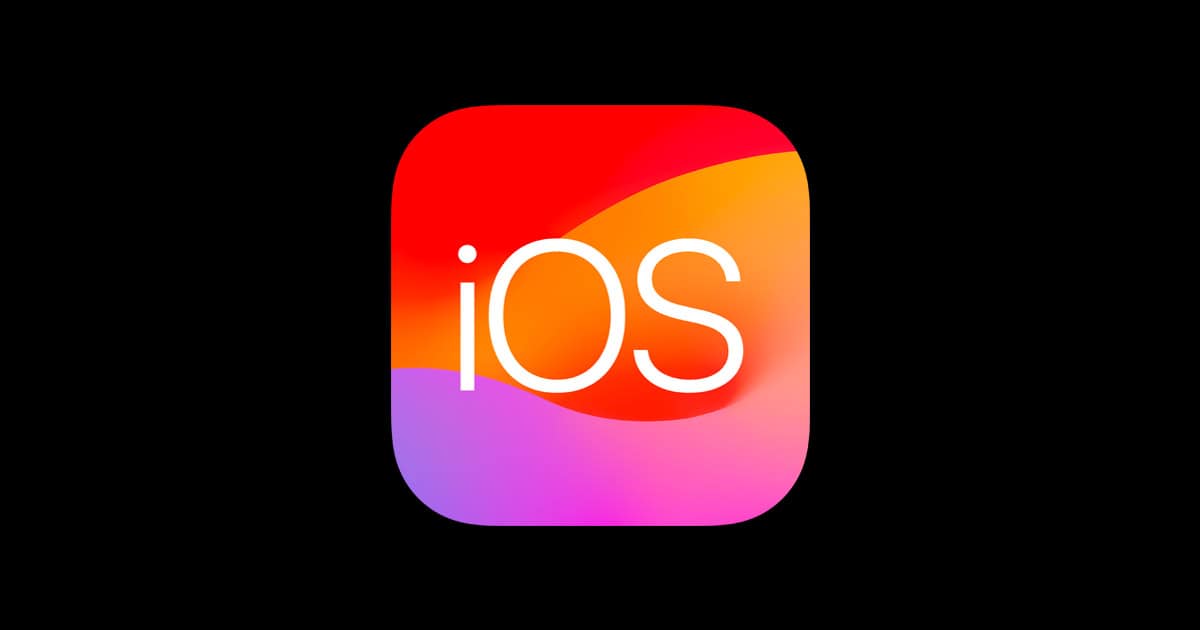As anticipated, Apple is projected to introduce the new iOS 19 at WWDC 2025, scheduled for June 2025. Traditionally, this new operating system will likely launch alongside the new iPhone 17 in September 2025. However, a notable change has emerged: many of the key features and updates planned for iOS 19 may be delayed until spring 2026. This information, reported by Bloomberg’s Mark Gurman, indicates that Apple plans to roll out features in stages rather than releasing everything in a single major update.
As the release date of iOS 19 approaches, both tech enthusiasts and Apple fans are closely monitoring these delays. This shift in strategy reflects Apple’s commitment to improving software quality and user satisfaction. The company aims to balance the integration of advanced AI technologies with a focus on enhancing the user experience. The tech community is eager to see how Apple adjusts its release schedules while continuing to innovate and responsibly meet user needs.
The delays for iOS 19 signify a broader change in Apple’s software strategy. As the launch date draws near, user anticipation is growing, and many will be observing how Apple manages this new staggered rollout approach. Given the rapidly evolving tech landscape, Apple’s efforts to refine its software while maintaining its reputation for reliability will likely influence how iOS 19 is received upon its eventual release.
iOS 19: Key Updates Might Be Pushed to Spring 2026
While Apple is gearing up to unveil iOS 19 at WWDC 2025, recent reports suggest that a significant chunk of the planned updates might not see the light of day until Spring 2026. This delay, affecting a “larger-than-usual number of features,” signals a potential shift in Apple’s software release strategy.
The Delayed Features
Bloomberg’s Mark Gurman reports that several iOS 19 features are slated for a later release, likely with iOS 19.4, expected in Spring 2026. While the specific features haven’t been officially confirmed, it’s speculated that they could include:
- Advanced AI Integrations: This might involve deeper integration of AI capabilities across various apps and services, potentially leveraging Apple’s own large language models.
- Productivity Enhancements: New features aimed at improving productivity and workflow across Apple devices might be part of the delayed rollout.
- Health and Wellness Upgrades: Apple has been steadily expanding its focus on health and wellness. New features related to health tracking, fitness, and mindfulness could be among those pushed back.
- AR/VR Experiences: With the launch of Apple Vision Pro, we might see more AR/VR features integrated into iOS, but some of these might be delayed to coincide with further advancements in Apple’s AR/VR ecosystem.
Reasons Behind the Delay
Several factors could be contributing to this potential delay:
- Focus on AI Development: Apple is reportedly taking a meticulous approach to AI development, prioritizing user privacy and data security. This might require more time to perfect the advanced AI features planned for iOS 19.
- Resource Allocation: With the launch of Apple Vision Pro and ongoing development of other hardware and software initiatives, Apple might be strategically allocating resources, leading to a staggered release of iOS 19 features.
- Ensuring Stability and Quality: By delaying some updates, Apple can ensure that the initial release of iOS 19 is stable and polished, avoiding potential bugs and performance issues.
A Shift in Strategy?
This delay could indicate a broader shift in Apple’s software release strategy. Instead of packing all major updates into the initial release, Apple might be moving towards a more gradual rollout, delivering new features and improvements throughout the iOS 19 lifecycle.
What to Expect at WWDC 2025
Despite the potential delay, WWDC 2025 is still expected to showcase some exciting new features for iOS 19. These might include:
- Revamped Siri: A more conversational Siri powered by advanced language models is anticipated.
- Enhanced App Control and Contextual Awareness: Improvements to Siri’s on-screen awareness and per-app controls are expected.
- Initial AI Integrations: We might see early integrations of AI capabilities, possibly including features powered by OpenAI’s ChatGPT and Google’s Gemini.
Stay Tuned
As we approach WWDC 2025, more details about iOS 19 and its release timeline will likely emerge. Stay tuned for official announcements and further insights from Apple.
Short Summary:
- Numerous iOS 19 features postponed until spring 2026.
- Apple adopts a staggered approach to major updates.
- Similar delays experienced with previous iOS versions.
In a surprising turn of events, Apple Inc. (AAPL) has decided to push back a considerable number of features anticipated in its forthcoming iOS 19, which is now slated for a spring 2026 rollout as part of iOS 19.4. This information, reported by Mark Gurman from Bloomberg, suggests a shift in Apple’s strategy, focusing on a gradual integration of new functionalities rather than delivering them all at once during the traditionally set release periods.
Sources close to Apple’s development indicate that this delay will affect an unusually large number of features, which typically would launch concurrently with the new operating system, expected to be introduced in September 2025. Instead, Apple’s goal now seems to identify success in a staggered feature release, a strategy they recently employed with iOS 18.
Notably, last year, Apple launched iOS 18 with some of its notable features missing. The much-anticipated Apple Intelligence, claimed to revolutionize user interaction through AI, was only made available a month later with iOS 18.1. Moreover, further advances in AI features, including ChatGPT integration and updates to Siri, are rhythmically being planned for future iOS updates.
“I’m told that a larger-than-usual number of features scheduled for iOS 19 (beyond the new Siri) are already postponed until spring 2026,” Gurman stated.
Apple is reportedly already at work on iOS 19, codenamed “Luck”. Leaks suggest this version will emphasize not only sophisticated AI capabilities but also privacy enhancements and user interface improvements—elements that Apple sees as critical to retaining its competitive edge in an evolving tech landscape.
Delayed Features: A Trend in Apple’s Strategy
This trend of delaying significant features isn’t entirely new for Apple. Last year’s iPhone release came without many of the anticipated capabilities that were supposed to elevate user experience. For instance, the hype surrounding the AI-integrated Siri has become a focal point of Apple’s communication strategy yet remains unavailable in its full capacity.
Many iOS enthusiasts are left pondering the impact of these delays. Users and developers alike are curious about how Apple’s strategy will unfold as they are poised for an updated Siri powered by large language models—aimed at enabling more natural interactions similar to those experienced with competitors like ChatGPT and Google’s Gemini.
Features on Hold
While specific features that will be postponed have not been disclosed by Gurman, the suggestion is clear: Apple is shifting its focus to a more measured approach to software enhancement. This change in strategy may also apply to critical features that users have regarded as essential to their iOS experience.
The upcoming iOS 19 appears set to follow suit, as Apple may prioritize a functional and dependable release schedule that does not overwhelm users with unfinished capabilities. While this might mean a more tempered launch in terms of flashy new features, it could also signal that Apple values consistency and user satisfaction over improving immediate appeal.
What Can Users Expect from iOS 19?
Looking ahead, iOS 19 seems poised to drive home Apple’s commitment to integrating AI capabilities throughout the iPhone and iPad ecosystem. Predictions suggest that users might have to wait until March 2026 to experience an enhanced Siri.
“This revamped Siri will rely on new Apple AI models to interact more like a human and handle tasks in a way that’s closer to ChatGPT and Google’s Gemini,” Gurman mentioned.
As the whispers surrounding iOS 19 emerge, several key features are anticipated to generate discussions within the Apple community:
- Privacy Enhancements: With user privacy being a significant focal point for Apple, developers are expected to integrate new measures that ensure data processing aligns with user safety, amid a world increasingly reliant on AI-powered services.
- Siri Upgrades: The anticipated changes to Siri could introduce a more conversational tone that aligns with contemporary AI interaction trends.
- Apple Intelligence: Advanced features leveraging AI will likely be introduced, allowing users to enjoy a touch of personalization in their device interactions.
Addressing User Concerns
This delayed rollout of major features not only raises questions about what users will actually receive at launch but also how they might impact customer loyalty and satisfaction. Apple, in its commitment to innovation, may have overlooked the potential backlash from consumers who expect timely updates on promised features.
As Apple’s developers refine iOS 19, there is growing anticipation surrounding what improvements can be implemented without totally relying on AI advancements. For example:
- Streamlining App Notification Management: Many users are advocating for a simplified way to clear unread notifications across all applications—currently a cumbersome process.
- Apple Wallet Upgrades: With more transactions processed through Apple Pay, integration enhancements could vastly improve user experience.
- Safari Improvements: Missing features like favicons in bookmarks on mobile versions should finally be addressed for a more consistent browsing experience.
- Revamped Alarm Clock: A general nostalgic update to this frequently used feature might be welcomed by many users who feel it has been neglected.







